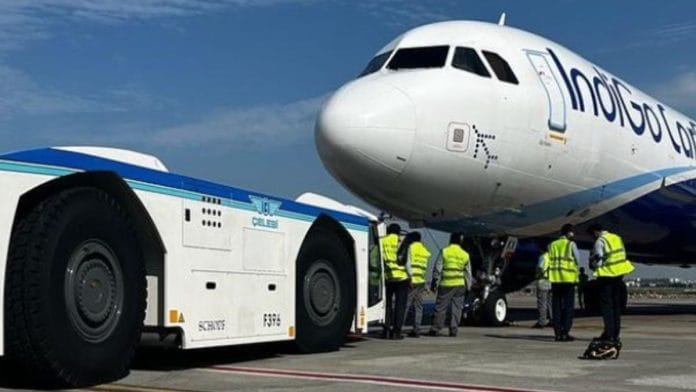New Delhi: “We are dealing with a peculiar sui generis situation where there is a threat to airport security at various Indian airports and this cannot be taken lightly,” the Centre told the Delhi High Court Thursday during a hearing on the challenge to the revocation of security clearance for Turkish ground-handling firm Çelebi Aviation.
Emphasising the urgency of the action, the Centre said that delay can defeat the whole point of action, and therefore, the principle of plenary or absolute powers comes into question. The principle of plenary or absolute powers refers to the complete and unlimited powers granted to a body or individual to make decisions or act on a specific issue.
Recalling the 2014 SC ruling in Ex. Armymen’s Protection Services vs. Union Of India, the Centre argued that principles of natural justice need not be complied with when it comes to matters of national security. It also added that interests of national security are not a matter of judicial decision but instead a matter of policy.
Significantly, Justice Sachin Datta asked the Central government to present the 15 May revocation letter to the court, following which the security clearance of the Turkish company had been cancelled.
There are various categories of powers under the airplane rules, the Solicitor General of India Tushar Mehta said, while adding that one such category of powers deals specifically with security concerns
Also read: Final assembly line in India for current commercial aircraft ‘doesn’t make sense’, says Airbus CEO
What the law says
At the outset, Mehta cited Rule 6 of the Aircraft (Security) Rules, 2023, which allows the Director General of the Bureau of Civil Aviation Security to issue written directions, consistent with the Bharatiya Vayuyan Vidheyak, 2024, and the rules made under it, “in the interests of national security”. He also added such directions will be binding for those to whom they are issued.
Apart from this, the Central government also laid out the role and responsibilities of the director general, who is responsible for carrying out regulatory and oversight functions with respect to matters of civil aviation security. One of these responsibilities is to “carry out the security risk assessment, and develop guidelines and procedures”, Rule 3(1) (2) (i) states while adding that this is based on the threat assessment done by national security agencies.
In doing so, the court also turned to Section 5 of the Aircrafts Act, which allows the Director General to issue directions on any one of the matters specified in the provision, including aircraft operations, air traffic control, maintenance and operation of aerodrome, communication, navigation, surveillance and air traffic management facilities and safeguarding civil aviation against acts of unlawful interference.
Significantly, one of the responsibilities of the DG is to make provisions to respond immediately to meet any increased security threat, the Centre told the court while adding that such a power can be exercised in cases where the DG or other officer is satisfied that it is necessary “in the interests of the security of India or for securing the safety of aircraft operations”.
Although the Bharatiya Vayuyan Vidheyak, 2024, replaced the erstwhile Aircraft Act, 1934, the provisions of the two statutes are largely similar, the Centre also submitted before the court today while adding that the security clearance to the Turkish firm Çelebi was granted under the 1934 Act.
Functions of ground-handling contractors
The Aircraft (Security) Rules, describe a “ground handling agency” as an entity established to provide ground-handling services at an airport.
Importantly, the Centre said that such ground handling contractors undertake several functions, and have direct access to the aircraft, check-in counters, access to passenger data which is sometimes confidential, VIP movements, and flight movements.
Response to Çelebi’s arguments
At Wednesday’s hearing, the petitioner Turkish company had, through senior advocate Mukul Rohatgi, relied on the Madhyamam Broadcasting ruling, to say that the right to freedom of speech would override national security concerns.
However, the Solicitor General today dismissed this reliance saying that the law is clear that when the issue is of national security, reasons do not have to be shared. He also argued that in that case, the TV channel was propagating a particular political ideology.
Although Rohatgi steered clear of saying that national security concerns are justiciable, he argued for the petitioners that at least some notice or some hearing should have taken place before revoking the Turkish company’s clearance.
(Edited by Zinnia Ray Chaudhuri)
Also read: Advanced air mobility in India is a blueprint for growth—decongest cities, cut travel time






